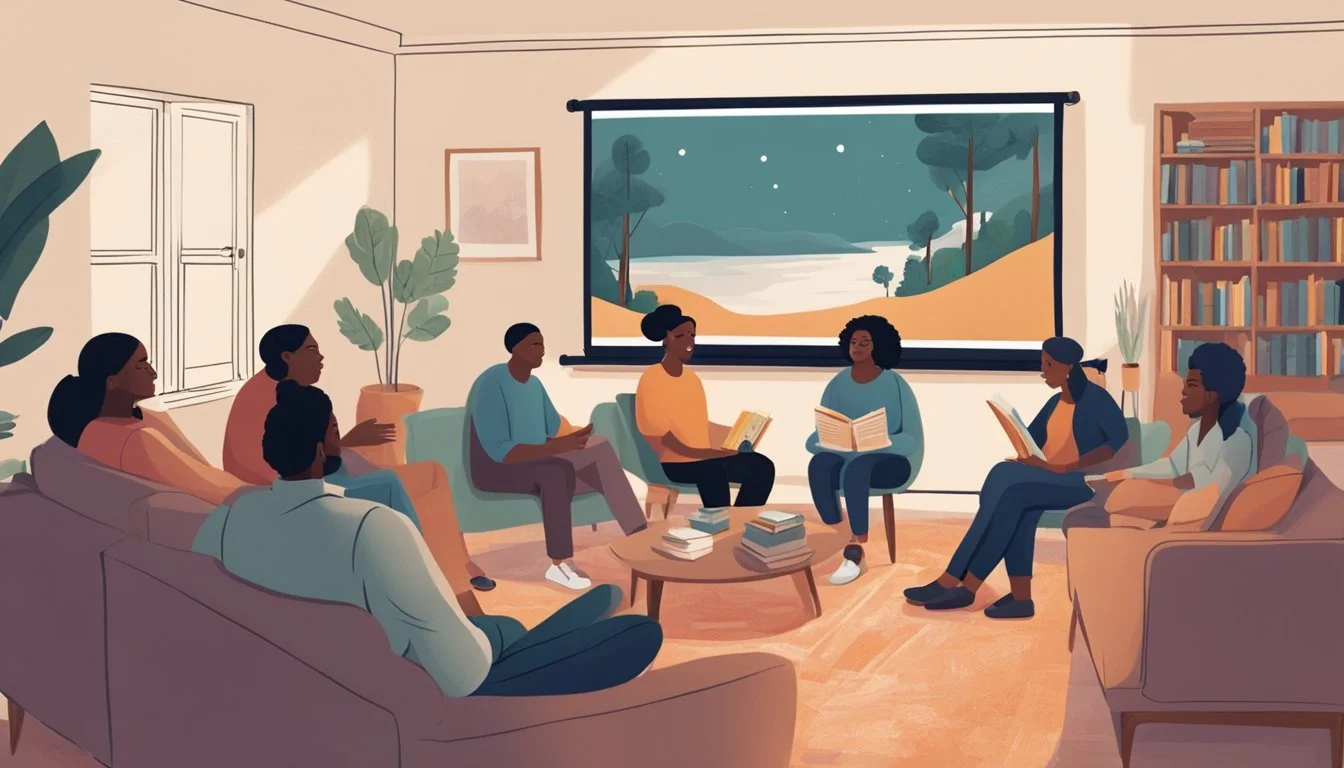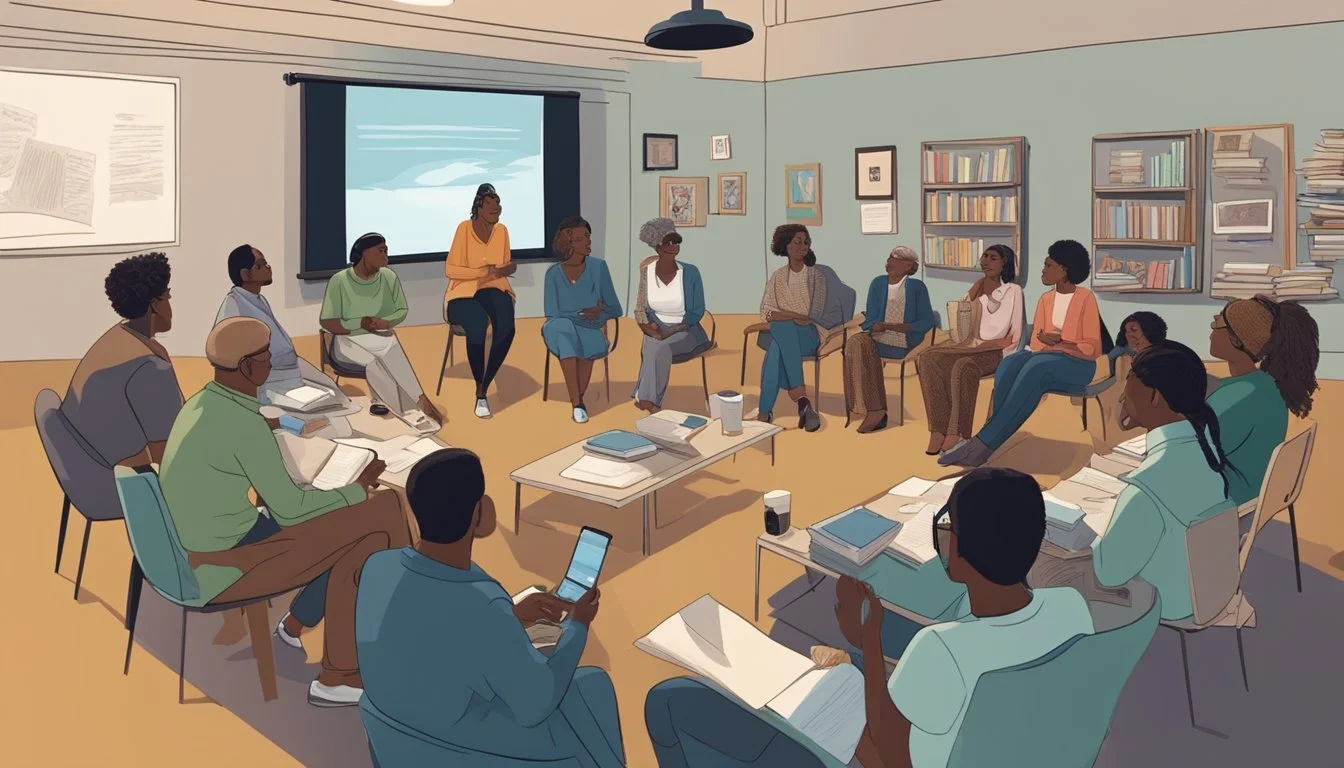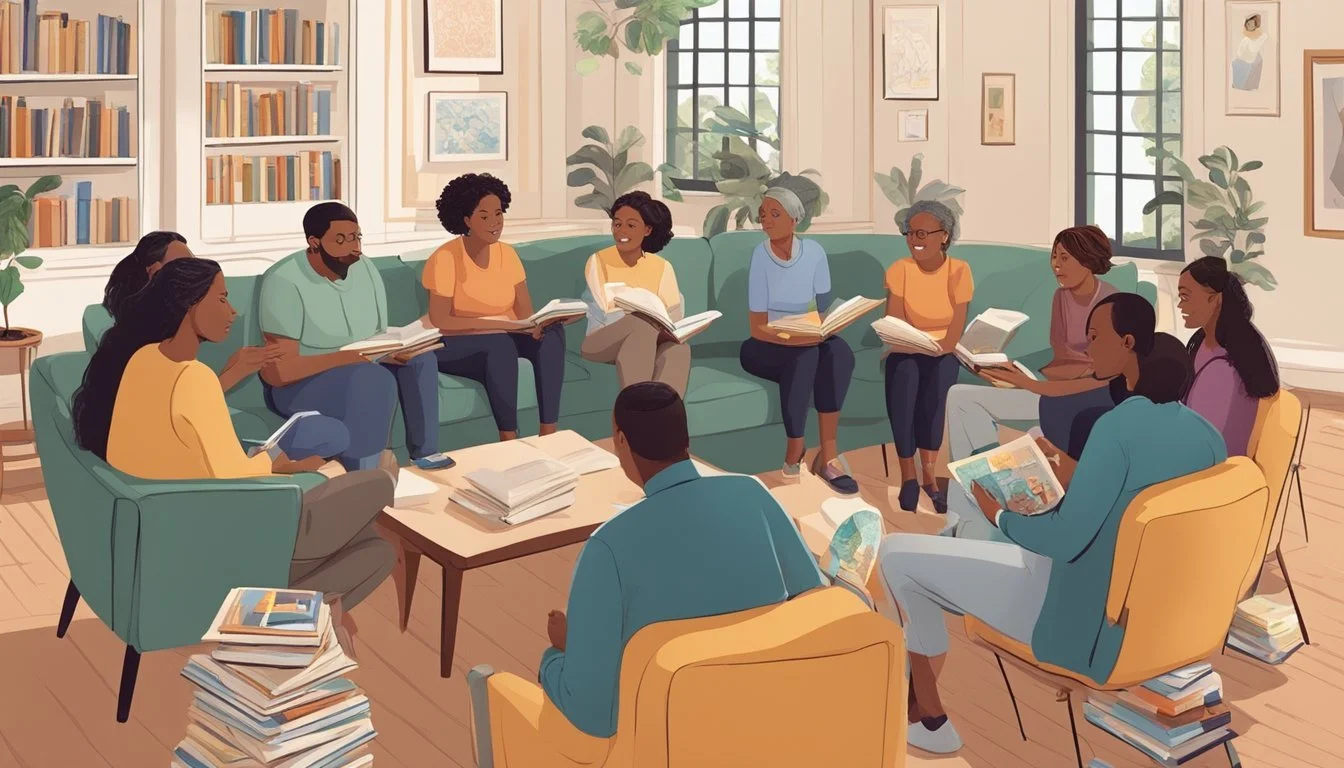5 Thought-Provoking Documentaries for Book Club Members
Expanding Literary Horizons Through Film
Documentaries have the power to enlighten, challenge, and inspire viewers. For book club members seeking to expand their intellectual horizons beyond the written word, certain films offer a unique opportunity to explore complex topics and spark meaningful discussions.
Thought-provoking documentaries can complement book club selections by providing visual context, expert insights, and real-world perspectives on various subjects. These films often delve into social issues, historical events, scientific discoveries, and personal stories that resonate with avid readers. By incorporating documentaries into their rotation, book clubs can enhance their understanding of different topics and foster engaging conversations among members.
1) 13th by Ava DuVernay (2016)
"13th" is a powerful documentary that explores the intersection of race, justice, and mass incarceration in the United States. Directed by Ava DuVernay, the film takes its name from the 13th Amendment to the U.S. Constitution.
The documentary examines how a loophole in the 13th Amendment has been exploited, allowing slavery to persist through the criminal justice system. It presents a compelling argument that mass incarceration is an extension of slavery.
DuVernay's film features interviews with activists, politicians, and scholars who provide insights into the historical context and current realities of racial inequality in America. The documentary uses archival footage and statistics to illustrate its points.
"13th" challenges viewers to confront uncomfortable truths about systemic racism and its impact on society. It prompts critical thinking about the criminal justice system and its disproportionate effect on communities of color.
This thought-provoking documentary serves as an excellent starting point for discussions on race, justice, and social reform in book clubs. It encourages viewers to examine their own beliefs and biases.
More information on "13th" (IMDB)
2) Won't You Be My Neighbor? by Morgan Neville (2018)
This documentary explores the life and legacy of Fred Rogers, the beloved host of "Mister Rogers' Neighborhood." Director Morgan Neville crafts a touching portrait of a man who dedicated his life to kindness and understanding.
The film delves into Rogers' philosophy of compassion and his unwavering commitment to children's emotional well-being. It showcases how he used his television program to address complex issues in ways that young viewers could comprehend.
Neville's work combines archival footage with interviews from Rogers' family, friends, and colleagues. This approach provides a comprehensive look at the man behind the cardigan sweaters and gentle demeanor.
"Won't You Be My Neighbor?" resonates with audiences by reminding them of Rogers' simple yet powerful message: every person deserves love and respect. The documentary serves as a poignant reflection on the impact of empathy and genuine human connection.
Book club members will find ample material for discussion in this film's examination of Rogers' values and their relevance in today's world.
More information on Won't You Be My Neighbor?
3) I Am Not Your Negro by Raoul Peck (2016)
Raoul Peck's documentary "I Am Not Your Negro" offers a powerful exploration of race in America through the words of James Baldwin. The film is based on Baldwin's unfinished manuscript "Remember This House," which examines the lives and assassinations of civil rights leaders Medgar Evers, Malcolm X, and Martin Luther King Jr.
Peck uses archival footage, photographs, and Baldwin's own narration to create a searing portrait of racial inequality in the United States. The documentary connects Baldwin's observations from the 1960s to contemporary issues, demonstrating the ongoing relevance of his insights.
"I Am Not Your Negro" received critical acclaim for its thought-provoking content and unique approach to presenting Baldwin's work. The film challenges viewers to confront uncomfortable truths about racism and its deep-rooted presence in American society.
By interweaving Baldwin's words with visual elements from both past and present, Peck creates a compelling narrative that spans decades. The documentary serves as a powerful tool for sparking discussions about race, identity, and social justice in book clubs.
More information on I Am Not Your Negro
4) The Act of Killing by Joshua Oppenheimer (2012)
The Act of Killing is a groundbreaking documentary that examines the 1965-66 Indonesian genocide. Director Joshua Oppenheimer takes an unconventional approach by focusing on the perpetrators rather than the victims.
The film follows former death squad leaders as they reenact their brutal crimes. This unique method reveals disturbing insights into the psychology of mass killers and the lasting impact of violence on society.
Oppenheimer spent over seven years making the documentary, blending different styles and materials to create a powerful narrative. The film forces viewers to confront uncomfortable truths about human nature and the capacity for evil.
The Act of Killing received critical acclaim and numerous awards, including an Oscar nomination for Best Documentary. It sparked important conversations about historical memory, impunity, and reconciliation in Indonesia and beyond.
This thought-provoking film challenges audiences to reflect on the nature of violence and its long-term consequences. It raises difficult questions about justice, morality, and the human capacity to rationalize horrific acts.
More information on The Act of Killing
5) The Fog of War by Errol Morris (2003)
The Fog of War is a compelling documentary that examines the life and decisions of Robert S. McNamara, former U.S. Secretary of Defense. Directed by Errol Morris, this film offers a unique perspective on American foreign policy during the Cold War era.
Morris skillfully uses archival footage and interviews with McNamara to explore his involvement in major historical events. The documentary covers McNamara's experiences during World War II, his role in the Cuban Missile Crisis, and his controversial tenure during the Vietnam War.
The film is structured around eleven lessons drawn from McNamara's life and career. These lessons provide insight into the complexities of war and decision-making at the highest levels of government.
Morris's innovative approach to documentary filmmaking shines through in The Fog of War. His use of Philip Glass's haunting score and the Interrotron interview technique creates an intimate and thought-provoking experience for viewers.
The Fog of War raises important questions about morality, responsibility, and the consequences of political actions. It serves as a valuable resource for book club discussions on war, ethics, and leadership.
More information on The Fog of War
Exploring Documentary Themes
Documentaries offer rich opportunities to examine complex topics through visual storytelling. They provide unique perspectives on cultural phenomena and historical events.
Cultural Insights
Documentaries serve as windows into diverse cultures and societal issues. They often highlight underrepresented voices and shed light on little-known traditions.
Some films explore contemporary cultural movements, like minimalism and its impact on modern lifestyles. These documentaries can spark discussions about consumerism and personal values.
Others delve into subcultures or niche communities, offering book clubs a chance to learn about unfamiliar ways of life. This exposure can broaden members' worldviews and challenge preconceptions.
Historical Context
Many documentaries excel at bringing history to life through archival footage and expert interviews. They can provide nuanced perspectives on past events and their lasting impacts.
Some films focus on specific historical figures, offering in-depth explorations of their lives and legacies. For example, documentaries about writers like Ayn Rand can illuminate their influences and philosophies.
Others tackle broader historical movements or eras, connecting past events to present-day issues. These films can help book club members better understand the historical context of the literature they read.
Impact on Literature Discussion
Documentaries about literature can profoundly shape book club discussions. They provide new perspectives and insights that enrich conversations about books and authors.
Enhancing Critical Thinking
Documentaries encourage book club members to analyze texts more deeply. They often present expert opinions and historical context, prompting readers to consider works from multiple angles. This expanded knowledge base leads to more nuanced interpretations.
Visual elements in documentaries can also illuminate themes and motifs that might be overlooked in text alone. Seeing an author's life experiences or the cultural backdrop of a novel can spark fresh observations.
Book clubs may find themselves exploring questions of authorial intent, cultural impact, and literary techniques with greater sophistication after viewing relevant documentaries.
Influence on Reading Choices
Documentaries can inspire book clubs to diversify their reading lists. Exposure to lesser-known authors or literary movements often leads groups to select books they might not have considered previously.
Films about specific genres or time periods can pique interest in related works. A documentary on the Harlem Renaissance, for example, might prompt a club to explore authors from that era.
Some documentaries highlight the ongoing relevance of classic literature, encouraging clubs to revisit timeless works with renewed interest. Others showcase contemporary authors, introducing readers to emerging voices in the literary world.




